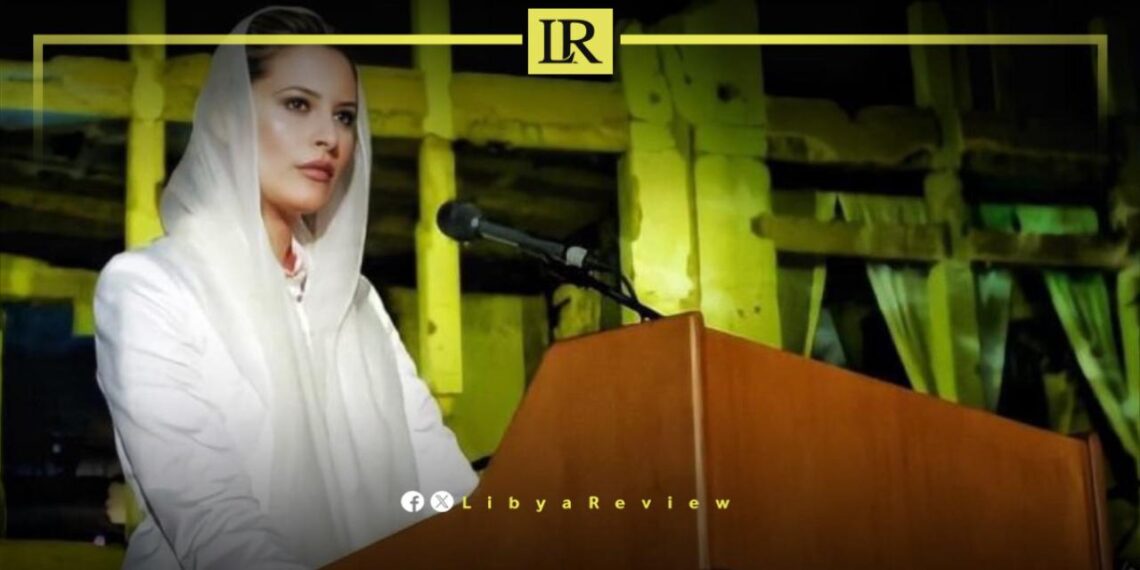On Sunday, the daughter of the late Libyan leader Muammar Gaddafi called on Libyans to campaign for the release of her brother, Hannibal Gaddafi, who has been detained in Lebanon since 2015. Hannibal is accused of withholding information about the disappearance of Imam Musa al-Sadr, the founder of the Shia Islamic Council, during his visit to Libya in August 1978 at the invitation of Muammar Gaddafi.
In a heartfelt message on Instagram, Aisha Gaddafi, who resides in Oman, called on her compatriots—whom she referred to as “honorable sons of my nation”—as well as legal experts and respected tribal leaders to take action against what she termed the “injustice and contempt” inflicted upon Hannibal.
“When I see other nations urging their citizens to leave Lebanon immediately for their safety, I cannot describe the pain and confusion I feel,” Aisha wrote. She emphasized that her brother has been imprisoned underground in Lebanon for ten years without trial for a case that dates back to when he was just two years old.
In her rare public statement concerning one of her siblings since leaving Libya, Aisha reminded Libyans that Hannibal Gaddafi is a son of Libya, stripped of his nationality, passport, national identification number, and freedom. “They killed his father and brothers, and he fled as a refugee, unprotected,” she added.
Dr. Ageela Delhoum, head of the Hannibal Gaddafi Legal and Media Committee, expressed that Aisha’s statement reflects the deep pain and anger she feels about her brother’s condition. Aisha, known for her artistic inclinations, left Libya with her mother, Safia Farkash, and brother Mohamed following the revolution that toppled her father’s regime on February 17, 2011.
Khaled Al-Ghwail, Advisor to the Union of Libyan Tribes for Foreign Relations, also called on international and local human rights organizations to act immediately for Hannibal’s release. Hannibal, who has been in custody since 2015, recently complained of deplorable health conditions in his underground cell.
Hannibal Gaddafi has been detained in Lebanon under accusations linked to the disappearance of Imam Musa al-Sadr, a prominent Lebanese Shia cleric who vanished in 1978 after traveling to Libya. The case has been a point of contention for decades, with various theories about al-Sadr’s fate but no definitive resolution.


